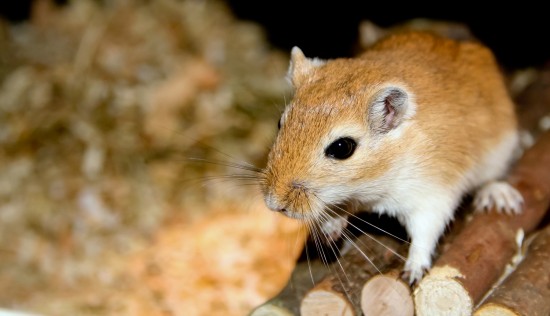Several years ago, I read a wonderful book about a group of people who decided it was time to stop the killing of innocent animals that were abandoned and homeless. In the first chapter of the book, Francis Battista called his friend, Michael Mountain, and exclaimed, "I抳e found the place."
An unbelievable plot of land had fallen into their hands in a town just north of the Grand Canyon in southwest Utah. The town of Kanab was home to a vast strip of land the size of Manhattan and blooming with junipers and willows. Red cliffs encircled the land as a tributary of the Colorado River ran peacefully through it. With sunshine over 320 days a year, it was perfect Eden to become the home of Best Friends Animal Sanctuary.
Not long after Best Friends began their program, they were contacted daily by letters and phone calls. Michael Mountain wrote in a recent editorial, the consensus was always the same. People expressed their feelings as, "I thought I was the only ones who cared about the animals. Now I know I抦 not." Back in 1982, an animal having only three legs or one eye found themselves on a one way road to the euthanasia room.
Animal activists of 25 years ago would send out letters of grotesque mutilations and inhumane horror stories in hopes of generating support for helpless animals. People were often too squeamish to even read the stories and many tossed the advertisement before even taking into account the goal of the organization sending it. Best Friends decided to change this negative approach into a positive story of how each animal抯 life was changed because of the intervention of the shelter and the "no-kill" philosophy.
There were about 15 million dogs and cats being put to sleep simply because they were deemed unadoptable. Thanks to the hard work of Best Friends and numerous other such sanctuaries that have since sprung up across the United States, fewer than 5 million animals die in shelters each year. This number is still huge and much work needs to be done. The goal is that no animal is put to death because it has been abandoned. And thus we must pursue the answer to the question: what types of shelters do exist and what are the differences. Exactly what is a "no kill" Shelter and what does this really mean?
Today, hundreds of shelters in 47 states across America advertise themselves as "no-kill." Some are for various breeds, feline, canine, or both. In the case of Best Friends , it is all animals.
There is a growing movement across the United States to prevent the euthanasia of animals placed in shelters. In the case of municipal shelters run by government agencies and containing workers often untrained in animal care and behavior, the animals are most often the losers. While the municipal shelters may try to find homes for the abandoned animal and reunite pets with their owners, the sad accounting is that 90 percent of animals taken into these shelters are eventually put down.
Some private shelters call themselves "no kill" yet when researching them we find that animals with chronic illness or deemed unsuitable for adoption are eventually put to sleep. Before supporting any private shelter, it is well worth investigating their actual policies and processes to establish whether they follow the true "no-kill" definition which states, in most instances, that no animal shall be put down other than to alleviate the animal抯 suffering or because the animal is so vicious as to be uncontrollable. Just because there is no room available, the animal is old, sick, handicapped, or unattractive does not make it a candidate for euthanasia.
A true "no kill" shelter, similar to that of Best Friends, would never put an animal down because it has a chronic illness that is expensive to treat, it is unattractive, old, handicapped or with a behavior problem. Animals deemed unfit for adoption are kept and allowed to live out their lives in a loving and caring environment free of cages and pens. Even the worst behavior problem can often be rectified with love and care.
Best Friends works to rehabilitate those that can be adoptable and allows all others, such in the case of Michael Vick抯 Pit-bulls, to live our their lives in a controlled environment where they cannot hurt people or other animals.
The recent No More Homeless Pets National Conference held in October, 2008, in Alexis Park, Las Vegas, provided expert guidance from Best Friends and other such "no-kill" shelters across the country teaching others how build membership, raise funds, place unadoptable animals, start online campaigns and put puppy mills out of business.
According to their website www.nomorehomelesspetsconference.org, the mission is to end pet overpopulation and animal cruelty by assisting others in achieving their respective missions. They formulate help in originating programs that are not already in place or complementing existing initiatives thus creating broad community awareness of the benefits of solving the plight of homeless animals. Their goal is for every healthy dog or cat to have a loving home.
On any given day, Best Friends Animal Sanctuary is home to about 2000 animals from all over the country. Some stay until they are adopted; many live out their lives in a healthy, loving environment at the sanctuary. The goal of "no-kill" shelters across the United States is to find loving homes for helpless abandoned animals and to care for those unfortunate enough to be left behind.
There is poem, whose author is unknown, that states in one line what those in these shelters appear to follow as their motto for all animals. It is a poem about God creating the heavens and earth, naming each creature how it was to be called. When almost done, God knows there is one small creature yet to name and says softly this, "I抳e left you to very end and turned my own name back to front. I抳e called you Dog, my perfect friend."
It doesn抰 matter whether dog or cat, bird, rabbit or another, God loves the creatures he has placed on the earth for our keeping. He never meant them to be mistreated or abandoned but to be loved and valued. They are the part of God that he gave to the entire world; a piece of his love that he has shared with us. Can we do any less than honor his choice by finding a place in our hearts to help those that depend upon us, to give of our time, our money, and our faith that no more of God抯 creatures suffer needlessly but find a shelter from the storm of life?

 Cat Genetics Part Four - Coat Colour - The Easy Version
Cat Genetics Part
Cat Genetics Part Four - Coat Colour - The Easy Version
Cat Genetics Part
 Nicotine Poisoning In Pets
Nicotine Poisonin
Nicotine Poisoning In Pets
Nicotine Poisonin
 Nasal Dermatitis In Gerbils Explained
Nasal Dermatitis
Nasal Dermatitis In Gerbils Explained
Nasal Dermatitis
 Most Popular Pet Services In London
In this day and age when austerity has become the norm,
Most Popular Pet Services In London
In this day and age when austerity has become the norm,
 How To Protect Guinea Pigs From Parasites
How To Protect Gu
How To Protect Guinea Pigs From Parasites
How To Protect Gu